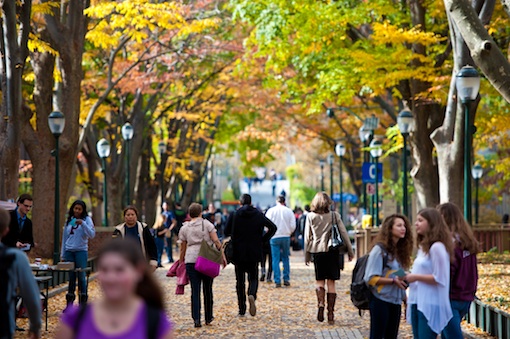Temple Study Finds Gardens and Trees Are Crime Deterrents
The journal Landscape and Urban Planning recently published a study from our very own Temple University, which looks at Philly neighborhoods and repudiates the longstanding notion that a high levels of vegetation—i.e., green spaces, gardens, parks—assists and emboldens urban crime. Long story short: well, it doesn’t.
In fact, quite the opposite is true. After examining socioeconomic, crime and vegetation data, Jeremy Mennis, associate professor of geography and urban studies at Temple, and environmental studies major Mary Wolfe found that the presence of grass, trees and shrubs is associated with lower crime rates in Philadelphia—especially for robberies and assaults.
Why? According to the authors, well-cared-for greenery encourages social interaction and community supervision of public spaces, and vegetated landscapes confer a documented calming effect—all things that deter crime. Furthermore, says Mennis, “reducing storm water runoff, improving quality of life, reducing crime—all of these [city] objectives are furthered by increasing well-managed vegetation within the city.”
Sounds like a win-win to me.



